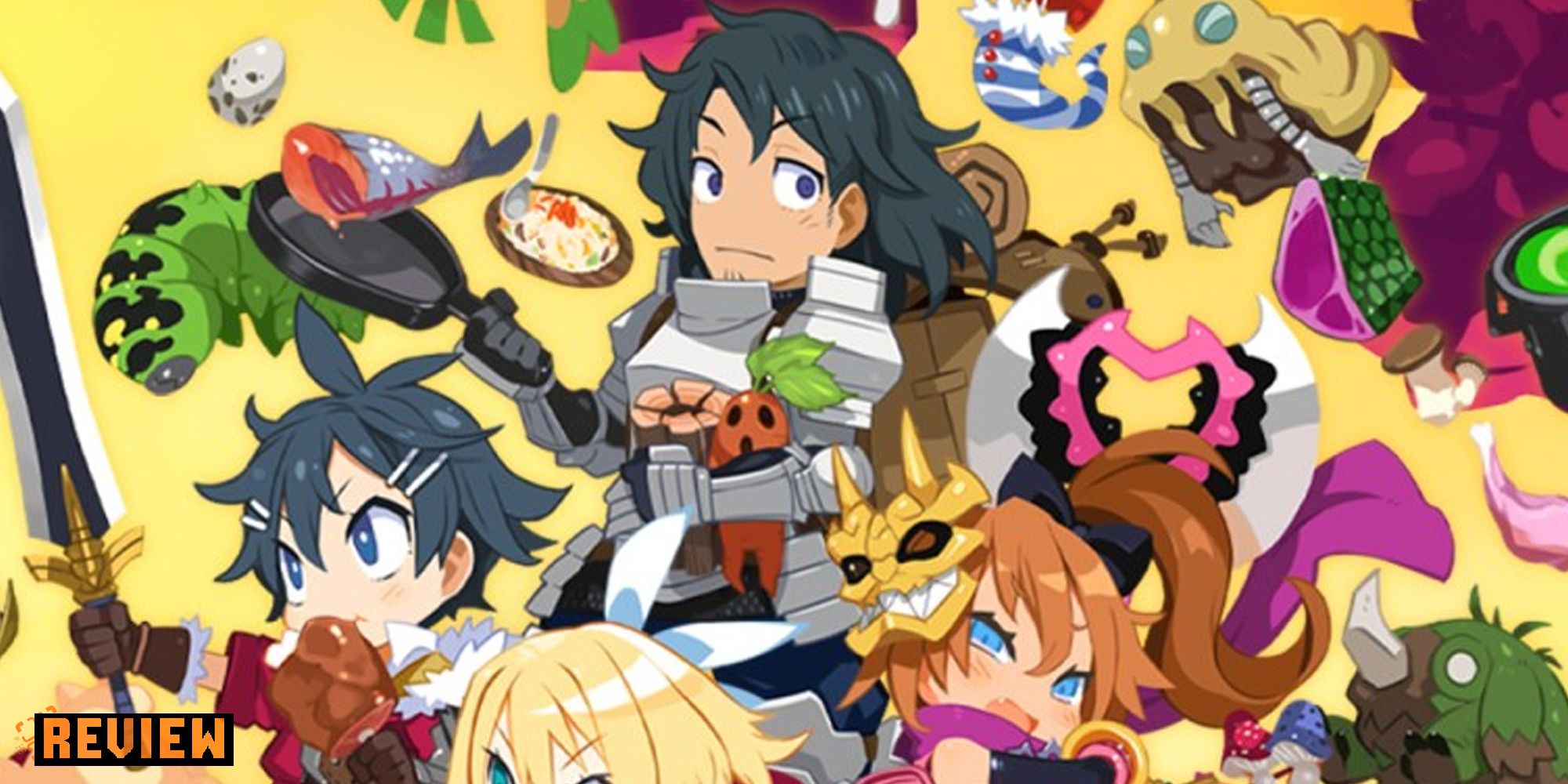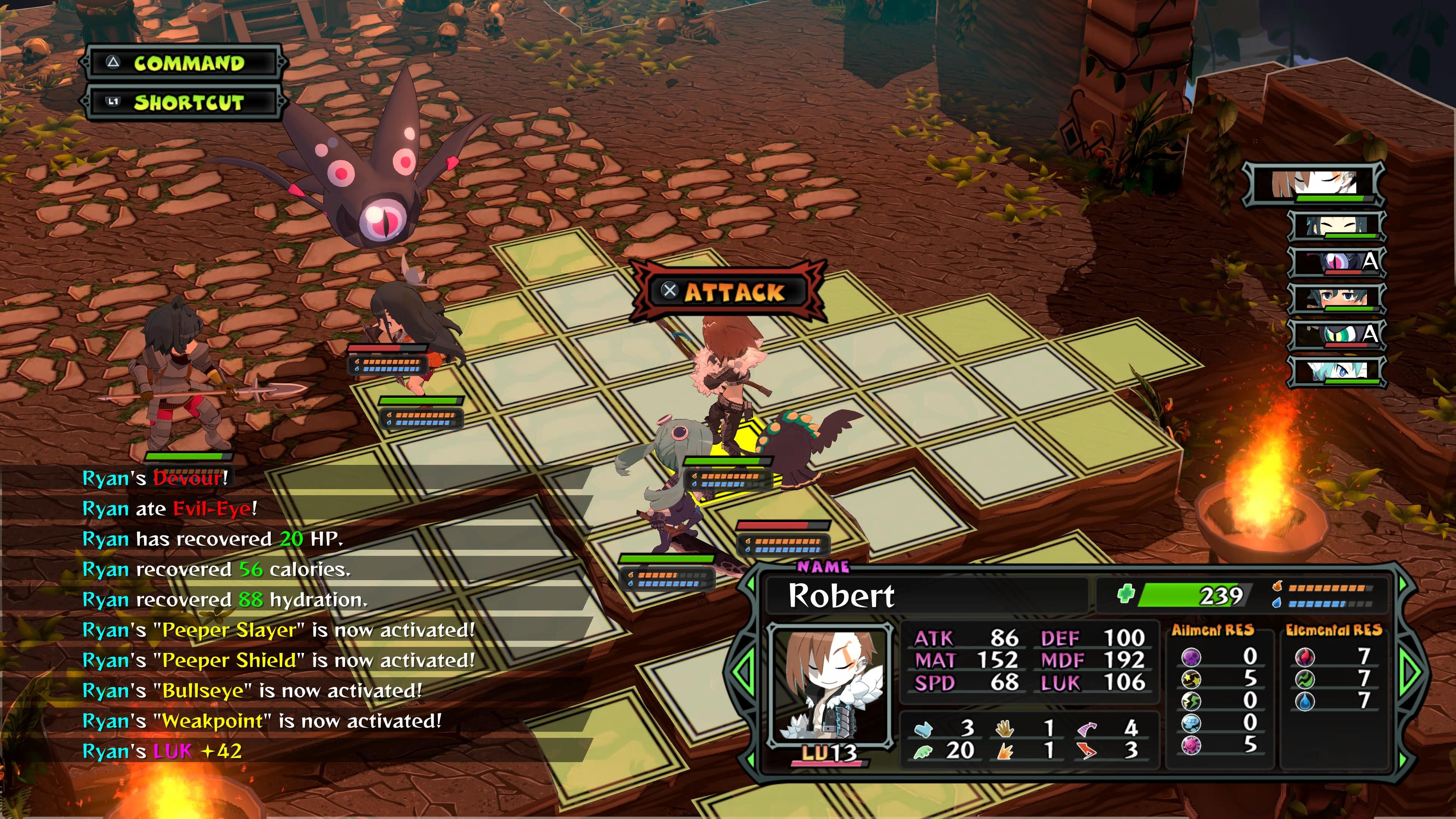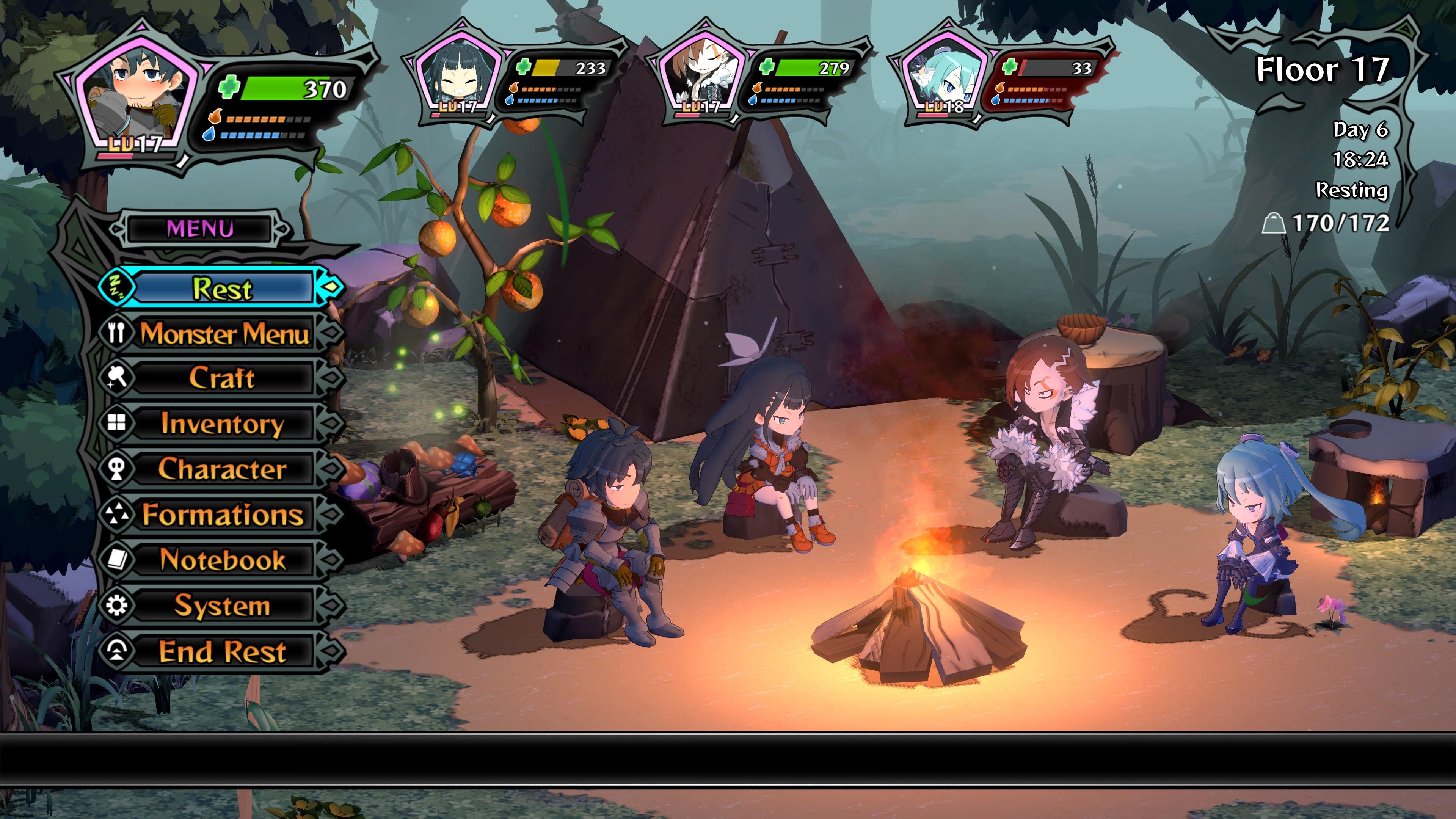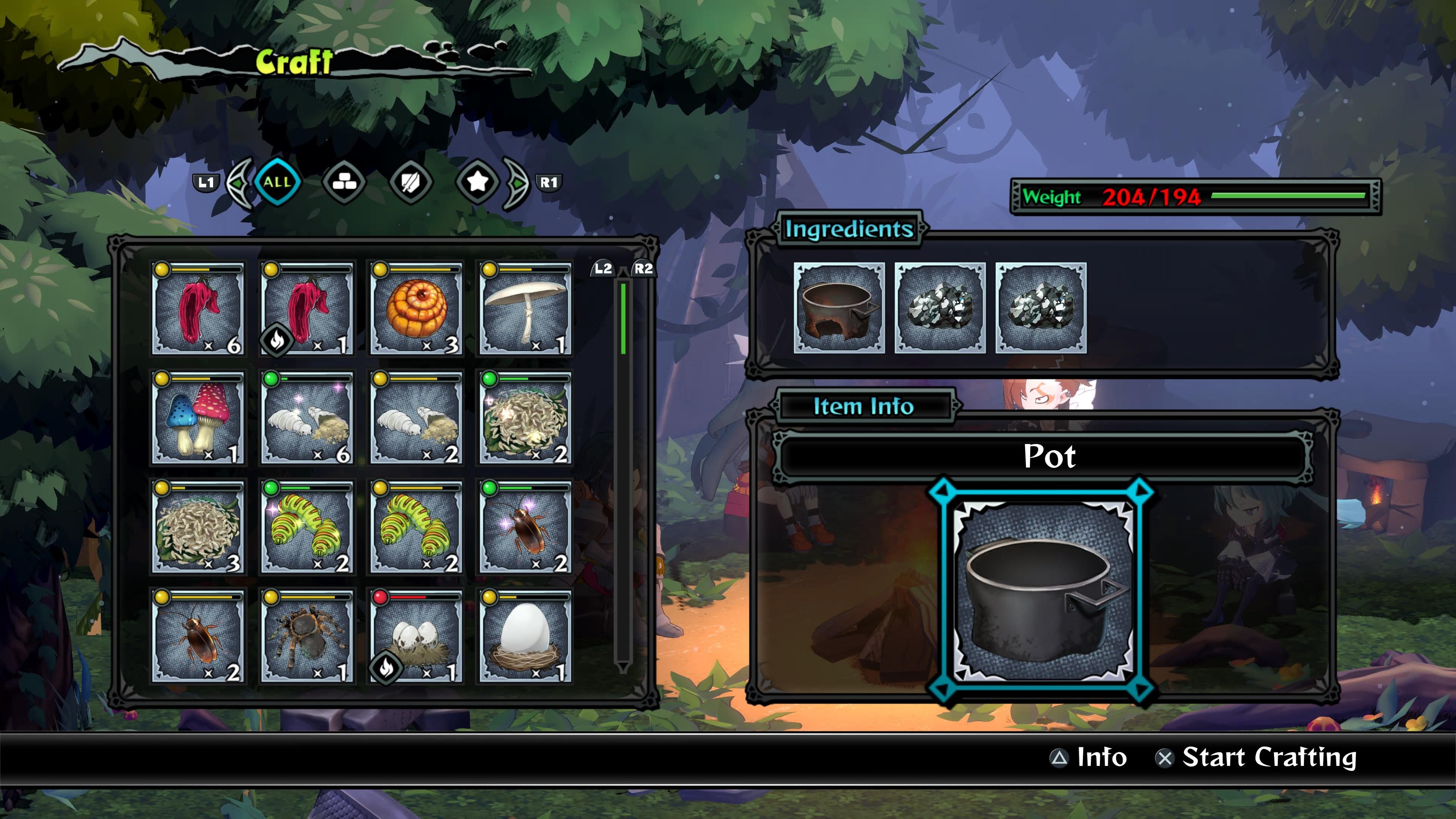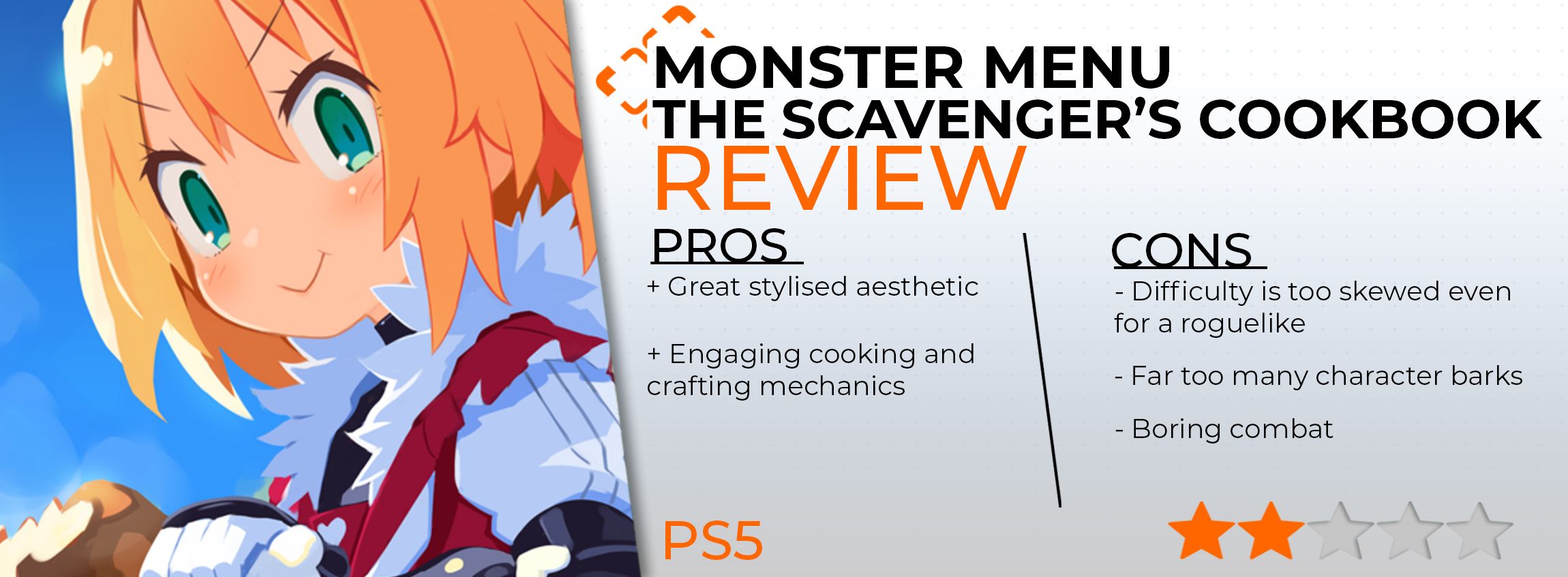Monster Menu: The Scavenger’s Cookbook opens to a lonely sight. A single adventurer, created by you only moments before, is dying from hunger and thirst. Dauntless, they push on through the mysterious dungeon - the one that was supposed to be an ‘easy outing’. At the end of a tiring journey that has their HP ticking down to single digits thanks to unbearable hunger, they come across a massive carcass. Starving and dehydrated, they eat some of it. Temporarily reinvigorated, it’s not long before they’re then crushed in combat and have to be rescued by some other adventurers, also customised by you. This amuse-bouche of a sequence is effective; it whets the appetite and sets the tone. Monster Menu is not a kind experience. This is a roguelike, not a roguelite, and it expects to be respected as such.
Let’s move on to the starter: learning the ropes. Monster Menu’s tutorial fails to properly inform you of the challenge ahead of you. You’re given basic lessons on how combat works, how to make your way through the dungeon and scavenge, and then how to take rests and cook meals. However, so much is left unexplained that it took translating the game’s Japanese wiki and basic trial-and-error to grasp rudimentary mechanics, such as how to prepare ingredients and how skills are learned. Once you get the hang of the game’s systems, things feel far better, but it left a bitter taste in my mouth.
Next is the entrée, gameplay. Quickly it becomes obvious that Monster Menu’s core gameplay loop revolves around dungeon crawling and not much else. It’s a main course of 100 reheated floors, and your team of intrepid warriors must devour the whole lot in one go. When you get a game over, your progress is mostly wiped, with only a few stats and firsthand experience carrying over between attempts. It’s a daunting task and feels like a risky direction to take in a market filled with more forgiving dungeon crawlers that have meta-progression elements, especially when the gameplay itself is undercooked.
The main course in any roguelike, combat is a very basic turn-based affair. There are some interesting touches, like being able to move freely during your turns and feeding nasty food items to your enemies, but the vast majority of clashes will amount to nothing more than your standard array of RPG classes trading blows until one side is dead. Sometimes you’ll run into overpowered enemies meant to be challenging sacks of experience that reward you greatly for surviving, but in most cases, foes get one or two hits in before going down, turning the adventure into a war of attrition that forces you to take rest stops to cook meals.
Bosses are far more interesting, as the encounters are specifically constructed to make you think harder about strategy, but this also means you’re often blindsided by the game finally caring enough to challenge you, and it feels cheap. This is not least because Monster Menu uses the universally-hated mechanic of ‘if your main character dies, it’s an automatic Game Over’ despite the main character having no special relevance to the plot.
Characters’ calories and hydration levels are actual stats that decrease over time and according to the actions they take, which makes things more interesting. Instead of consuming something as nebulous as MP, your characters are expending extra energy to use their special skills, and this mechanic is fine-tuned to force you to take frequent rest stops to replenish your characters’ bodies. This feeds into the ‘Menu’ half of Monster Menu.
These cooking and crafting mechanics are ostensibly the main draws of the game, the delicious dessert that makes the meal memorable and is the only reason Monster Menu is worth recommending to friends. The dungeon is filled with resource points to scavenge at, and monsters themselves will drop items. You can either prepare these individually on the go or wait until you reach a camp, cobbling together more complex meals to restore their health and grant them more powerful skills.
This is the most engaging part of the game; cooking strategically to provide meals for your party, taking into account their caloric needs and their general role in battle, makes for a complex puzzle game. The meals are also realistically grim, being made out of ingredients you find in a monster-ridden dungeon - there are no convenience stores to shop at here. At one point, I fed my mage, who I’d lovingly named after my partner, so many bug-based dishes that he vomited. That didn’t feel great. Although, a very nice touch is that you can opt to have the game censored, which removes vomiting and makes the grossest meals a little more appetising to the eye.
After four courses, you must be feeling full - how about a digestif? Monster Menu’s narrative would suit, as it’s complex and extensive, yet totally pointless. You learn about the world almost entirely through journals and notes picked up throughout the dungeon and have some vague snippets of an overarching story told to you as you beat bosses, but it feels like an afterthought. The individual notes are initially compelling, and there’s obviously a rich tapestry of worldbuilding here, but it’s told through disjointed stories of characters you don’t meet and locations you’ll never visit. After reading a few, it’s very easy to ignore the rest. Roguelikes have always been gameplay-first affairs, and this is no outlier.
Monster Menu is a competent game at best. It emulates the Rogue experience decently and does something very interesting with its food-based mechanics, but it doesn’t stretch far. There’s enjoyment to be had in the high-difficulty and grindy aspects- if that’s your thing, but you won’t find much depth or complexity here. More McDonalds than Michelin, you’ll wish that you’d opted for something more flavourful.
Score: 2/5. A review code was provided by the publisher.

